Standard OperationIf you’ve never read the book Legacy by James Kerr, you’re missing out on one of the best insights into excellence and elite culture that’s ever been captured. Kerr spends over a year fully engulfed in all aspects of the day to day culture of one of the most successful sports teams in history.
The New Zealand All Blacks are a professional rugby team that has won nearly seventy-seven percent of their matches, known as tests in the rugby world. They’ve also captured three World Cups. Since 2003 when world rankings were first introduced, the All Blacks have held the number one ranking eighty percent of the time the. They’re the gold standard of team performance. For over one hundred and twenty years the players have changed, the coaches have changed, the circumstances have changed but the performance on the field has remained consistent. Game after game, season after season, decade after decade the All Blacks have out-performed the opposition. Many point to the lopsided win-loss record or the numerous championships as evidence of their gold standard status. While it’s impossible to deny those public achievements do not highlight the greatness of the All Blacks, they fall short of being the standard. This desire to cite outcomes as the standard illustrates our lack of a true understanding for what a standard is. A standard is not a result. It’s not championships, acquisitions, or cases won. A standard is a behavior, not a thing. It’s something you do, not something you get. Why Should We Care? Operating as if achievements express a certain standard is dangerous because it furthers the narrative that our outcomes are the primary measurement of excellence. Achievements often reflect the standards we operate by but not always, especially early in the process - when struggle and failure are most present. Standards must refer to behaviors rather than achievements. How we choose to act when we face adversity, how we choose to act when we experience success, how we choose to act when we are treated unfairly, how we choose to act when interacting with people that can not help us, how we choose to act when we feel slighted, how we choose to act when we don’t feel like doing what we need to do, how we choose to act when excuses are valid and available … The list could go on and on. The standards of the All Blacks is not their wins, it’s their behaviors that have allowed their wins to take place. How they prepare, how they compete, how they treat teammates, how they win, how they lose - these are their standards. As leaders, we need to think about establishing standards around the behaviors we desire rather than the results we’re trying to achieve. This is not a complicated process, but it does require a high level of intentionality. Once a vision is set, we simply consider the behaviors that must take place on a daily basis for that vision to become a reality. The challenge is staying true to those behaviors day after day, moment after moment. REAL TALK - Action Steps The draw, of course, is to conform to society and view our achievements as the standard. It’s easily measurable. Whether we want to acknowledge it or not, our accomplishments - or lack thereof - are not fully within our control. Our standards, however, are. They are clear choices that we either make or don’t make. Here are a few behaviors to consider building standards around for your team:
Standards are not benchmarks, accomplishments, or rankings. Standards are behaviors that drive performance. Maintaining a focus on behaviors, not outcomes, is the only way to consistently drive excellence. We don’t get what we want. We get what we accept - those are your standards. Checkout Surrender the Outcome on Amazon and order The Score That Matters with Ryan Hawk & Brook Cupps. The latest blog from Blue Collar Grit can be found here!
1 Comment
Procrastination StoriesWhen asking my leadership class about challenges they face that keep them from being the best version of themselves, one of the more common responses is procrastination. Digging deeper, students pointed to overloaded schedules, demands by parents, and a lack of appropriate time management on their part.
It seems to me that each points to deeper factors. Many people justify their overloaded schedules by pointing to their high expectations - more commitments equals more accomplishments. While this holds with logic, it does not jive in practice. An overloaded schedule is simply an indication of a lack of focus. It’s an attempt to make everything important and, by doing so, we lessen the importance of everything. Students being burdened by the demands of parents is nothing new. It also does not have a solely negative impact. We all perform better when expectations are high. The problem arises when the demands of others, including parents, become a higher priority than our demands for ourselves. Time management is definitely a reflection of our schedules. However, it is more accurately a reflection of our mindset about our schedule. We all have the same amount of time in the day. Any excuse attempting to make your situation unique is irrelevant. Some people manage it well, some don’t. While my students, and many adults, are quick to list these justifications for their procrastination, they all fall short of accurately explaining it. Why Should We Care? Procrastination is typically tagged as laziness from the outside. Of course, we don’t label it that way when we are self-reflecting but we also don’t call it what it is - an avoidance of the negative emotion that surrounds the task we are facing. Sometimes it’s fear, sometimes it’s frustration. Sometimes it’s anger, sometimes it’s boredom. But, it’s usually not laziness. Lazy is an adjective used to describe a person. It’s an indictment of an individual, a judgment of a person’s character. Lazy is an unwillingness to do. Procrastination is choosing something else. It’s redirection and delay, but it’s not always a negative. It’s important to know that our procrastination is tied to the emotion, not the task. Unfortunately, changing our emotions is not simple to do. It’s much easier to just quit or hold off on the task that is creating that emotion. Our emotions are always tied to a story. Gaining control of these stories is the key skill we need in order to redirect our emotions. One of the most important aspects of procrastination that we like to ignore is the progress it can ignite. We can all point to numerous specific examples in which a break from a task has thrust us forward when we return to that very same task. What a shame if we waste years because of our unwillingness to waste days. REAL TALK - Action Steps Let’s focus on rescripting the stories that surround our emotions in order to fend off our natural inclination to procrastinate. Here’s a few ideas:
Procrastination is an emotional affliction. We should be careful to not tie it too directly to character and effort. To combat it best, become a master of the stories you tell yourself about your emotions. Checkout Surrender the Outcome on Amazon and order The Score That Matters with Ryan Hawk & Brook Cupps. The latest blog from Blue Collar Grit can be found here! The Fight for SimplicityI’m very grateful for my childhood. Primarily for my parents who were loving, but honest; empowering, but strict; and hard working, but family-centered. I am extremely aware of my good fortune and recognize that I am still prospering from that good fortune.
I’m also grateful for the time in history I grew up in. The heart of my childhood was the ‘80s. Electricity and indoor plumbing were pretty well established, television was coming along nicely - even though the youngest in the house usually had to serve as the remote, and travel was far enough advanced to not have to worry about getting from one place to another. The ‘80s were also well before technology took over. There was little competition for our attention. Spending hours upon hours outside playing was the norm and I looked forward to it every day. We had no agenda and no rules other than don’t die. Those were fun parameters for a kid. Thinking back to those times always brings a smile to my face. I can’t say the same about the world kids today grow up in. Why Should We Care? When considering the future my thoughts are drawn to our ever-growing need to be entertained, want for excessive safety, and addiction to technology advancement. None of them are healthy, yet we charge forward in the facade of progress. But, is it really progress? The need to be entertained is devastating to our curiosity. The obsession for safety restricts the development of our resilience. The addiction to technology blocks our willingness to fully appreciate simplicity. I don’t believe the pursuit of progress, or technological growth, has the intent to cause these issues. I think technology, especially, is designed to simplify certain aspects of life. All the safety guidelines are obviously meant to protect people. And, entertainment is simply meant to help us enjoy life even more. In the pursuit of excellence we must be cautious of these dichotomies. While entertainment is enjoyable, there is significant benefit in our ability to creatively respond to situations that present themselves in our life with simple, common solutions even when they are less than enjoyable. Risk, while it has the potential to introduce physical and emotional harm into our life, is also one of the only paths to simple life-giving qualities like self-confidence, resilience, and toughness. Technological advancements keep us at the forefront of modern society, but often at the expense of an appreciation for the simple, basic foundations of life. If we want the present, and certainly the future, to be as incredible as the past we are going to need to begin fighting for simplicity. REAL TALK - Action Steps It’s simplicity that gets lost in all the examples shared above. Give a toddler a toy in a big box and I guarantee their curiosity with the box will entertain them longer than the toy will. Watch little kids on playgrounds, if you can find one without adults hovering waiting to catch little Johnny or Jenny, you'll see simple problem-solving being practiced and resilience being grown. They figure out what’s safe and what isn’t. And, take note of the unfiltered joy young people experience playing with no technology around. Here are a few more ideas to help win the fight for simplicity:
Checkout Surrender the Outcome on Amazon and order The Score That Matters with Ryan Hawk & Brook Cupps. The latest blog from Blue Collar Grit can be found here! Your Audience MattersAbout nine years ago we started the Team Leadership Group for captains of various school groups - sports teams, academic clubs, and various groups in the arts. We would meet once a week for about forty-five minutes before school. We covered a variety of leadership topics while also allowing students the opportunity to collaborate in order to solve issues they were facing on their own teams. It was great. Students opted into the group and were very engaged, curious, and helpful to their classmates.
At the prompting of administration the Team Leadership Group eventually turned into two elective leadership classes. While the semester courses go into much greater depth on many of the topics, the basic content being delivered did not change much. Unfortunately, the same can’t be said for the audience. For the first five years of the leadership class, students were very similar to the ones I observed in the Team Leadership Group - active, thirsting for the information on how to live and lead more purposefully and intentionally. But, of course, they chose to be there. In the last two years there has been a significant change in that desire to learn and want for the information. We now have more students simply taking the class for elective credit rather than a genuine interest in growing as a leader. They are existent and compliant, but certainly not compelled. The audience has changed - different passion, different intent. Why Should We Care? Our message as a leader is often much more like a dog whistle than a megaphone. We like to think everyone will get it if we just say it loud, or often, enough. But, the reality is only those that want and connect with the message are benefitting from it. In order to maximize our impact as leaders we either need to find the right audience or craft the right message - both are equally important, but the message is usually what gets most of our attention. The message is obviously critical and is the focal point for most leaders. We have been led to believe that if the message is crafted well enough and is inspiring enough, then the composition of the audience is virtually irrelevant. That’s not the case. Some people simply are not interested, see no value in it, or are not ready for it at that point in their life. In an effort to appease the audience, we usually revert to changing the message. And, though we should constantly be reflecting and evaluating the delivery and content of our message, the issue is not always found in our message. Sometimes the audience is the problem. “If you are talking to everyone, you are talking to no one.” The some messages we share will not resonate with everyone. Yet, we are offended when people don’t agree with us or even condemn our opinion. It’s okay. We share a message because we believe in it or we’ve witnessed the truth of it in our own life. Some audiences won’t appreciate our position. Some audiences will completely disagree with our position. And, some audiences won’t care at all what our position is. All of those are okay. We just need to find the right audience. The right audiences share our passion, desire to grow in the areas we are working in, and care deeply about the group. They don’t have to agree with everything we say and do; but they do need to care, have some curiosity, and desire growth. REAL TALK - Action Steps Of course, sometimes we don’t get to pick our audience. In those cases, the message needs to be crafted to appeal to that specific group. Although we rarely are in a position to hand-select our entire team, we will have opportunities to choose team members from time to time. Here are a few ideas to keep in mind in that selection process:
Alignment is critical in several aspects of life. Audience and message is one of those aspects. All messages are not for all audiences and all audiences are not for all messages. When leading we are looking for the pairing that offers maximum impact. Checkout Surrender the Outcome on Amazon and order The Score That Matters with Ryan Hawk & Brook Cupps. The latest blog from Blue Collar Grit can be found here! Keep It SimpleOne of the more difficult aspects of coaching basketball is helping players understand, and embrace, their role on the team. It’s much easier in other sports like football, baseball, or volleyball. The position in those sports draw a fairly clear distinction in what a player should and shouldn’t be doing. The left tackle on a football team isn’t throwing passes and the quarterback isn’t usually running pass patterns.
That clarity isn’t as present in basketball. In the age of positionless basketball, centers dribble and guards post up, and everyone shoots threes! For the most part, everyone does everything. While this provides a different dynamic to a team, it also blurs the lines of duties and roles. And, not too many things are more detrimental to a team than blurred duties and roles. Sometimes it can be difficult to identify who has a full grasp on their role and who doesn’t, but the primary indicator is easy to find. We don’t need to ask questions or survey other people. We just need to know the answer to one question: Do they keep it simple? Why Should We Care? Consistently trying to do more than you are capable of doing is a crystal clear indicator of a blurred role. By trying to do more, they are demonstrating their lack of acceptance for their current role and what the team needs them to do. Beyond that, they are also downplaying the importance of the role they currently hold. Roles are empowering. Clarity creates conviction. When defining roles for our team it is imperative that there is no room for misinterpretation - bright lines only. Of course, we need to articulate the “Dos & Don’ts” but more importantly we need to articulate the “Probably Shoulds & Probably Shouldn’ts”. These are the decision-making areas that tend to smear the line the most. Roles add value. Clarity grows impact. While most people view roles as limiting, we like to look at a role as a way to add value to someone. By putting people in the best situations for them to succeed, we are playing to their strengths where they will ultimately contribute more, progress faster, and typically experience more joy as a result of their contribution to the greater good. The more clear that role is, the more team members can pour into all aspects of it. REAL TALK - Action Steps Keeping it simple is not an easy thing to do as a leader. There are deadlines to be met, skills to be learned, and profits to be made. Although it may seem counterintuitive, finding a way to simplify roles for those we are leading may be the quickest path the means we are striving for. Here are a few ideas on keeping it simple:
Simplicity is magical, but it’s not easy. Far more work is required to eliminate the many so we can focus on the few than most people realize. It is, however, work that is worthwhile. Checkout Surrender the Outcome on Amazon and order The Score That Matters with Ryan Hawk & Brook Cupps. The latest blog from Blue Collar Grit can be found here! Trust Your EyesThe transfer portal in college basketball right now is beyond crazy. Over 1500 players are in the portal, looking for a new home to continue their college basketball career. It’s basically turned into a free agency situation in which athletes, or agents, openly make financial and playing time demands in exchange for a one year commitment to play for said school.
College coaching staffs then have a decision to make: hold onto the idea of players coming to their program grateful for the opportunity to further their education and career, embrace growth and gradual improvement, and be a part of something bigger than themselves; or, accept the shift in focus to personal financial gain, the need for immediate opportunity, and prioritization of the individual over the team. Of course, it’s not always that clear of a discrepancy. There are players, and coaches, that are able, and willing, to navigate the power struggle better than others. Nonetheless, it’s a messy situation that challenges both parties to evaluate the true intentions of the other in an environment that is unstable at best. In talking with a few coaches and players directly involved in the process, the most sound advice I’ve heard in regards to accessing the intentions of others is to “trust your eyes more than your ears”. Why Should We Care? We should care because we know it to be true, yet consistently fail to heed the advice. We are charmed by the clever answers to our interview questions by candidates that we are naturally drawn to and want to hear the right answers from. We over-value the accomplishments listed on resumes, concluding that previous success equates to future success. And, we lean too heavily on the recommendations of others, assuming their opinion is destined to match our opinion. Words are the cheapest form of the truth. It’s our eyes that we can trust. Those college coaches I referenced earlier have endless amounts of film to find the truth. And, most of them watch it. And, most of them deny what they see in favor of what they read or hear. Rather than their own eyes, they choose to trust the opinions of others. They know the truth. We know the truth. Sometimes we trust it, sometimes we don’t. REAL TALK - Action Steps Of course, part of being able to trust what you see is knowing what you’re looking for. As leaders, much of the time we lack the clarity to know exactly what we want to see. Hence, we defer to following cited accomplishments, star rankings, and the opinions of competitors. Here are a few things worth looking for:
People say a lot of things. Some of the time they mean it. If you want to know the truth, just watch what they do. Checkout Surrender the Outcome on Amazon and order The Score That Matters, a USA Today Bestseller, with Ryan Hawk & Brook Cupps. The latest blog from Blue Collar Grit can be found here! Humble ConfidenceBeing humble is easy, just zoom out. Think about how tiny you are in the scope of the world. We like to think we’re a pretty big deal, but in reality we simply aren’t. None of us are. As Morgan Housel noted, “Your personal experiences make up maybe 0.0000001% of what’s happened in the world, but maybe 80% of how you think the world works.” Insignificance is humbling.
Being confident is also easy, just zoom in. The more we think about ourselves, the more sure we become in our own greatness and importance. Preparation is the precursor to real confidence, but the amount of preparation is always relative. And, we’re usually pretty generous with the assessment of our own work. Preparation produces confidence. Unfortunately, in isolation, humility isn’t enough and neither is confidence. Humility alone serves others but fails to embrace the risk necessary to perform at your best. Others are included but the mediocrity doesn’t keep them around long. Confidence alone emblazons the individual but ultimately fails to include anyone else in the journey. You can excel but will realize quickly that doing it alone leaves a void that no level of personal performance can fill. We can achieve at a high level but ultimately it’s not worth it if we’re alone. To be our best, we should be blending humility and confidence. Why Should We Care? Humility draws others to us and allows us to fulfill our need to impact others. Confidence allows us to perform at our highest level. While both can be grown, each requires very intentional actions to develop. Here are a few actionable ideas on progressing in each area: Humility:
Humility naturally flows from my spiritual beliefs in creation, forgiveness, and hope which were all given to me. I did nothing to earn them. I did nothing to deserve them. Humility in acceptance of these gifts is the only response that makes sense. On the other hand, humility makes little sense if I believe I am personally responsible for everything I have. What is there to be humble about? Confidence:
My confidence grows exponentially when I shift the source of that confidence from myself to something bigger than me. Rather than striving for confidence in my performance, my confidence goes to my faith in being okay regardless of the outcome. My faith allows this confidence to be unwavering. Absent this faith, my confidence falls solely to me, who I know is flawed, insufficient, and incompetent much of the time. What is there to be confident about? REAL TALK - Action Steps Separating the two simplifies our efforts to grow in the areas we are deficient in, however our most impactful growth will come when we engage in actions that foster humility and confidence at the same time. Here are a few actions that will help us grow both:
Humble confidence isn’t something that gets posted on social media or plastered on walls in an office. It has to be experienced to be appreciated. The path to excellence is a narrow one but a humble confidence will widen the trail. Checkout Surrender the Outcome on Amazon and order The Score That Matters with Ryan Hawk & Brook Cupps before its release in March 2024. The latest blog from Blue Collar Grit can be found here! The Talent FallacyIt’s March Madness, the greatest sporting event on earth! Over the course of the next few weeks buzzer beaters will break hearts and keep dreams alive, tiny mid-majors will compete against tradition-rich blue bloods, and players we’ve never heard of will out-perform guaranteed lottery picks.
It’s entertaining, infuriating, and exhilarating all at the same time. It never fails to deliver. Of course, most people love it the most for the upsets. Highly rated teams from big conferences with enormous fan bases being knocked out of the tournament by a team whose location is a mystery and look like they finished second at the local YMCA winter men’s league. These matchups provide the lifeblood of the entire tournament. The question is, why do the upsets happen? The larger schools almost always have teams with more talent - higher recruits, bigger athletes, more skilled basketball players … so, why do they lose? How can these smaller schools with lower rated recruits, smaller players, with less skill beat the goliaths? There are many reasons it happens, but it all boils down to one key point that coaches, and business leaders, miss on over and over and over: Talent is overrated. Why Should We Care? We do the same thing in the ‘real’ world. When hiring, or putting teams together, our focus is always on finding the most talented candidates. I mean, if the purpose of your resume isn’t to highlight your talents, then what is it? Of course, there is a certain level of competency required to fill any role on a team, but once that base level is met virtually everything else that leads to success is unrelated to talent. The mindset around talent says more is always better when most of the time, enough is usually best. While maximizing talent remains at the top of most employer’s wish lists, the best leaders understand the idea of a talent threshold - more is not always better. And, once that threshold is met, they turn their attention to critical behaviors that allow individuals to function at maximum capacity within a team. Soft skills like humility and emotional IQ are easy victims of this relentless quest for talent. Partially because they’re harder to see and partially because they simply are not valued enough. REAL TALK - Action Steps When your team is struggling to reach its goals, the answer is typically not a lack of talent. Yet, insufficient talent is the most common scapegoat for underperformance. Likewise, when your team is performing at its best, the reason is rarely due solely to your talent. Nonetheless, a team’s success is almost always attributed simply to one thing: talent. Here are a few characteristics that are every bit as deserving of credit as talent. *Pat Lencioni’s The Ideal Team Player
Contrary to the popular approach to team structure, talent alone is not king. Unless accompanied by a few other critical attributes, talent can be just as detrimental as it is beneficial. Checkout Surrender the Outcome on Amazon and order our new book The Score That Matters with Ryan Hawk & Brook Cupps. The latest blog from Blue Collar Grit can be found here! Faith & ConfidenceFaith and confidence are both critical to our development, leadership, and fulfillment in life. However, they are not the same thing even though many people try to treat them as such. Here are two examples to illustrate the difference:
In order to be our best, we need both. In order to be the best leader, we need to help those we lead have both. Why Should We Care? Excellence is only possible through the merging of faith and confidence. Confidence without faith is hollow. It produces moments of excellence surrounded by long periods of underachievement. It’s quick to claim excellence and superiority, while realizing the fragility of each unstable performance. Confidence without faith is an unsustainable model for excellence. It lacks the foundation, fabric, of excellence: a need and desire to improve. Confidence alone fails to value work. Faith without confidence is wasteful. It works, sacrifices, and grows only to be sabotaged by a fear of being seen. It forms the precise foundation necessary to sustain excellence, only to back away when the starting gun sounds. Faith without confidence will always fall short. It lacks the fearlessness and disregard for judgment required by consistent excellence. Faith alone fails to value risk. Faith and confidence, together, provide the perfect formula for sustained excellence. Belief plus work. REAL TALK - Action Steps The idea that belief and confidence are critical for high achievement is not new or revolutionary. It’s likely quite obvious if you pay any attention to the people around you who consistently perform at a high level and the people who struggle to maintain excellence. The challenge arises in establishing, growing, and living with faith and confidence. Here are a few ideas for each:
Faith and confidence are inseparable when we are at our best. Helping those we lead to grow in each should be one of our primary goals as a leader. Checkout Surrender the Outcome on Amazon and order The Score That Matters with Ryan Hawk & Brook Cupps before its release in March 2024. The latest blog from Blue Collar Grit can be found here! Packing LightIf you’re going on vacation, how long before you leave do you start thinking about what you’re going to pack? I’m convinced there are two camps of thought on this question:
We have very different approaches to packing due to this difference as well. She packs on a “just-in-case” basis which leads to approximately sixty percent of the things she packs never making it out of the suitcase. I take a more minimalist approach to packing which leads to about seventy-five percent of what I pack being worn multiple times. I operate with the mindset that if I’m not sure I’ll need it, then I’m not taking it. My wife operates with the mindset that if she might need it, then she is taking it with her. Both approaches have accompanying burdens that must be accepted. For her, she has to drag around a bunch of stuff she’s never going to use and she commits a month of mental contemplation to a decision on each item to determine if it makes the cut. I don’t have to lug around a bunch of unnecessary items or waste bandwidth on a month’s worth of decisions. However, I do occasionally end up on vacation without a few things that I need. She might say more often than occasionally. I would say, it’s always worked out just fine. Why Should We Care? What are you carrying with you that you don’t need? Don’t lie to yourself. There’s stuff. Here are a few:
REAL TALK - Action Steps It’s easy to say “just let go of it” but much more difficult to actually do it. Here are a few ideas to help you decide what you should be packing with you and what you should leave behind.
We have become accustomed to loading our suitcase with far too many thoughts, concerns, and opinions - of both ourselves and others. These do nothing but cloud our ability to live, and appreciate, our own values consistently. By eliminating the unnecessary we make room for the essential. Checkout Surrender the Outcome on Amazon and order The Score That Matters with Ryan Hawk & Brook Cupps before its release in March 2024. The latest blog from Blue Collar Grit can be found here! |
About bcI'm a teacher, coach, and parent seeking excellence while defining success on my own terms. Archives
July 2024
Categories |


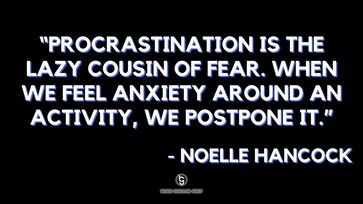
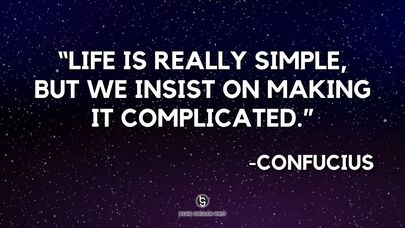

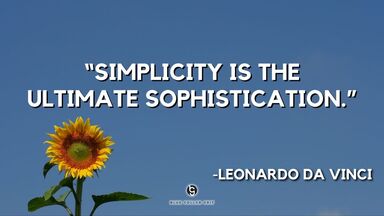
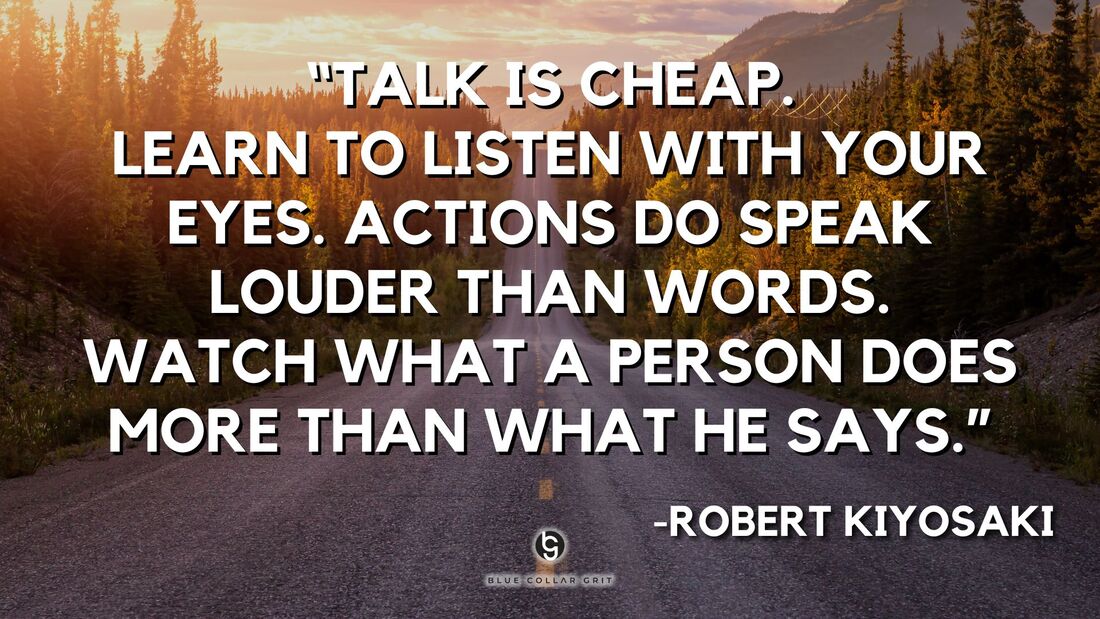
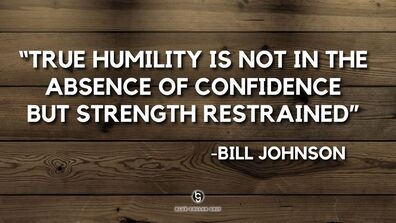
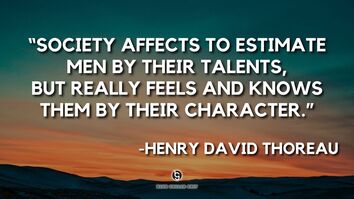

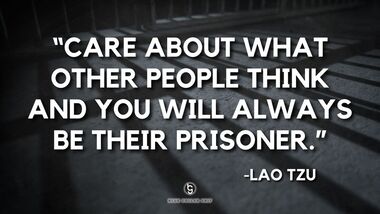
 RSS Feed
RSS Feed